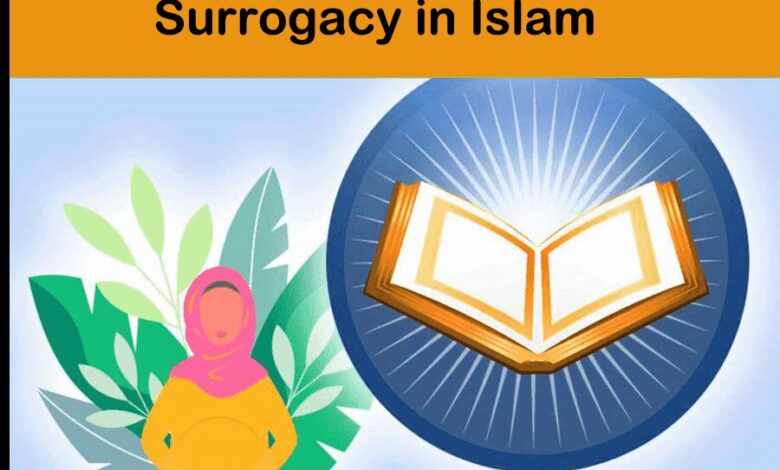Surrogacy in Islam – A Complex and Controversial Issue

I. Introduction
- Importance of giving birth and having children in Islam
- Surrogacy as a controversial and largely forbidden practice
II. Islamic Perspective on Surrogacy
- Reasons behind the ban on surrogacy
– The introduction of a man’s sperm into a woman who is not his wife is considered adultery
– Allowed only if the embryo was conceived by the couple themselves
– The commercialization of childbirth destroys its sanctity
- Fatwa prohibiting surrogacy and its rationale
– The child’s right to know their biological parents
– Parenting confusion
III. Assisted Reproductive Technologies (ART) in Islam
– Receiving ART for medical reasons and infertility treatment
– Strict conditions and regulations
– Only for legal marriages
– Third-party biological material is not allowed
– Embryos can only be used by the same couple
IV. Exceptions and Variations
– Iran’s approach to surrogacy
– Allowed without commercial benefit
– Only for medical and marital reasons
– Gamete donation is permitted
-Variation of views and practices in Muslim countries
V. Conclusion
– Surrogacy remains a complex and controversial issue in Islam
– Importance of understanding religious and cultural beliefs
– Need for open dialogue and ethical consideration
Surrogacy in Islam is a very complex and controversial issue in Islam. Although the desire for children is natural and celebrated, the practice of surrogacy is largely prohibited due to religious and ethical concerns. The main objections come from the introduction of a man’s sperm to a woman who is not his wife, which is considered adultery, and the potential commercialization of childbirth, which destroys its sanctity.
 However, Islam generally supports assisted reproductive technologies (ART) for medical reasons and infertility treatment, but with strict conditions and regulations. These include limiting ART to legal marriages, banning the use of third-party biological material, and restricting the use of embryos in the same couple.
However, Islam generally supports assisted reproductive technologies (ART) for medical reasons and infertility treatment, but with strict conditions and regulations. These include limiting ART to legal marriages, banning the use of third-party biological material, and restricting the use of embryos in the same couple.
There are exceptions, such as in Iran, where surrogacy is permitted without commercial benefit, only for medical reasons and officially married spouses, and gamete donation is allowed.
Introduction
In Islam, the birth of a child is considered a significant and blessed event. The desire to have children is natural, and the Quran states that “offspring and wealth” are the adornments of human life. However, the practice of surrogacy, often referred to as “womb leasing,” is a highly controversial and largely forbidden issue within the Islamic faith.
Islamic Perspective on Surrogacy
The prohibition of surrogacy in Islam stems from several religious and ethical concerns. First, it is considered adultery for a man to enter a woman who is not his wife. This extends to a man impregnating a woman who is not his wife with an in-vitro conceived embryo. Second, in-vitro fertilization (IVF) is only permitted if the egg and sperm are both from the couple themselves. It is illegal to place such an embryo in another woman’s uterus.
Furthermore, pregnancy and childbirth are considered sacred blessings in Islam, and it is considered unethical to commercialize or profit from this process. Any financial transactions or payments made in a surrogacy agreement are seen as violating the sanctity of the birth.
In 2005, a fatwa (religious ruling) was issued banning surrogacy, citing the reasons mentioned above. Additionally, the Quran explicitly states that “no one can be their mother except the woman who gave birth to them,” emphasizing the importance of maintaining clear lines of parentage and kinship.
Assisted Reproductive Technologies (ART) in Islam
Although surrogacy is largely prohibited, Islam generally supports assisted reproductive technologies (ART) for medical reasons and infertility treatment. However, strict conditions and regulations govern the use of ART within Islamic principles.
ART can only be used for couples approved by Sharia law, and the sperm and egg must be provided by the legal marriage itself. The use of third-party biological material, such as donor eggs or sperm, is strictly prohibited. Additionally, in-vitro fertilization is not allowed for unmarried women and same-sex couples.
Islam allows the freezing of fertilized embryos, but they can only be used by both couples if they remain married. Frozen sperm or eggs can be used before receiving chemotherapy, but their use is prohibited after divorce or death.
Exceptions and Variations
While most Muslim countries have banned surrogacy, Iran stands as an exception, allowing surrogate motherhood under specific conditions. In Iran, surrogacy is permitted without any commercial benefit for the surrogate mother and only for medical reasons and officially married spouses. Additionally, gamete donation (sperm or egg donation) is allowed in Iran.
It is important to note that the stance on surrogacy varies among Muslim countries and scholars, reflecting the diversity of interpretations and cultural contexts within the Islamic faith.

A Word of Caution for Intended Parents from the Islamic Faith
For intended parents from the Islamic faith considering surrogacy, it is key to exercise caution and seek proper guidance due to the religious and legal complexities surrounding this issue. Although the desire to have a child is natural and understandable, the practice of surrogacy is prohibited in most Muslim countries and can pose significant challenges in terms of your family’s efforts to develop third party reproduction services, within your own country or through international surrogacy.
One of the main challenges is the legal status of the child born through surrogacy. In many cases, the child may not be eligible for citizenship or a passport from the country where they were born, because surrogacy is not recognized or illegal. This can create difficulties in returning the child to the parents’ intended country.
For example, if a Pakistani couple seeks surrogacy in a country like Ukraine, where surrogacy is legal, the child born through surrogacy may not qualify for Ukrainian citizenship or a passport. The couple will need to apply for Pakistani citizenship and a passport for the child, which can be extremely difficult due to religious and legal prohibitions on surrogacy.
Additionally, even if the intended parents are permanent residents of another country, such as the UK, this does not automatically give the child born through surrogacy citizenship or a passport from that country. The child may still need to obtain citizenship and a passport from the parents’ country of origin, which can be a complicated and difficult process. If the intended parents are citizens of a country where surrogacy is permitted, it may be an easier path for them as the baby will be able to obtain travel documents.
For example, if the intended parents are UK citizens (of Islamic origin), they can apply for citizenship and a passport for the baby at the UK embassy, where they will ultimately obtain travel documents.
It is very important for intended parents from the Islamic faith to consult legal experts and Islamic scholars in their respective countries before pursuing surrogacy. They should fully understand the religious and legal implications, as well as the potential challenges they may face in obtaining legal recognition and documentation for the child.
So, what are the other options to consider in surrogacy and Islam:
- Explore surrogacy in countries where the child can obtain citizenship and a passport, such as the United States/Colombia/Argentina, but be prepared for potential scrutiny and questions upon return to your home country.
- Seek guidance from Islamic legal experts and scholars to explore alternative paths to parenthood that are consistent with religious principles and laws.
- Consider adopting a child, as adoption is generally accepted within Islamic principles, although specific rules and regulations may vary among different Islamic communities.
- If you hold dual citizenship, then use the one where you have a greater chance of obtaining travel documents for the baby.
Regardless of the path chosen, it is crucial for intended parents from the Islamic faith to prioritize ethical considerations, seek proper guidance, and respect the religious and cultural beliefs surrounding this sensitive issue.
Conclusion
Surrogacy remains a complex and controversial issue in Islam, with religious and ethical concerns at the forefront of the debate. Although the desire for children is natural and celebrated, the practice of surrogacy is largely prohibited due to issues surrounding adultery, the sanctity of childbirth, and the importance of maintaining a clear line of parentage.
However, assisted reproductive technologies are generally accepted for medical reasons and infertility, but with strict conditions and regulations aimed at upholding Islamic principles and values.
As with any complex issue, open dialogue, ethical consideration, and respect for religious and cultural beliefs are essential to navigating the complexities surrounding surrogacy in Islam.
Ultimately, the stance on surrogacy varies among Muslim countries and scholars, reflecting the diversity of interpretations and cultural contexts. As with any complex issue, open dialogue, ethical consideration, and respect for religious and cultural beliefs are essential to navigating the complexities surrounding surrogacy in Islam.
Reference used:
https://www.al-islam.org/ask/is-surrogacy-allowed-in-islam-0
https://international-surrogacy.com/blog/surrogacy-and-ivf-in-islam





